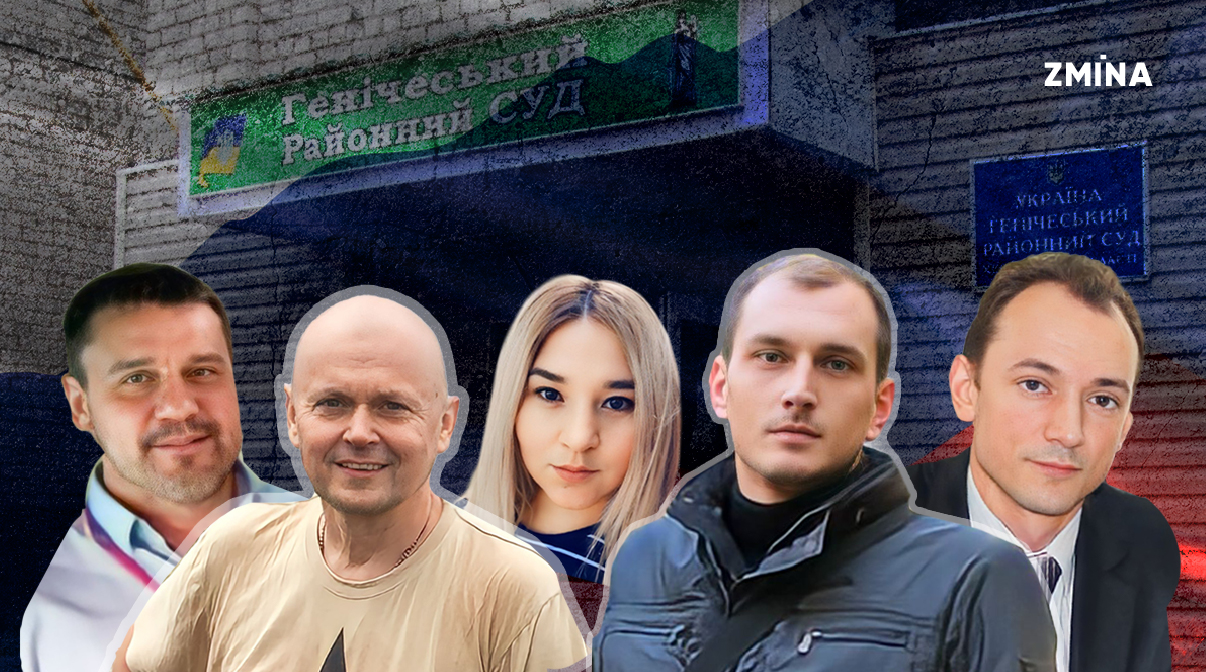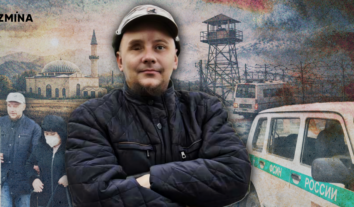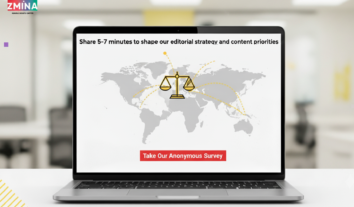Who went to work in the “courts” in the occupied Kherson region
After the illegal “referendums” in the newly occupied territories of Ukraine, the so-called regional offices of Russian authorities began to be formed. In particular, Russian occupying forces established Russian courts.
Read this article about how and from whom the “judicial bodies” were formed in the Kherson region and how impartial the new judges seem.

Potemkin courts
In March last year, a separate Russian federal law created 13 districts and inter-district “courts” in the Kherson region, including those with jurisdiction over the territories controlled by Ukraine. In addition, Kherson’s “regional,” “garrison,” and “arbitration courts” were established. Since the Russian troops did not get along with the regional center itself [Ukrainian Armed Forces de-occupied Kherson city and part of the Kherson region in November 2022], the “arbitration” and “regional court” were located in Henichesk and the “garrison court” was moved to the farthest edge of the region – to the village of Henicheska Hirka.
Despite the formal existence of these structures, in ten months, the Russian Judicial Department has not found it possible or deemed it necessary to add the “new regions” to the unified state automated system Pravosuddya [Justice]. A search on this portal does not yield any results for any of the “courts” created by federal law, and the Kherson region is not listed in the “Subject of the Russian Federation” section. In addition, none of these courts has an official website.
Also noteworthy is the lack of information on appointing “judges” to entities such as Oleshky, Holoprystan, or Kakhovka “courts.” Even the legal addresses of these entities or details of state duty payments could not be found in the public domain.
Collaborators with experience
Oleksandr Tsvetkov heads the central “court” of the occupied Kherson region. He was the head of the Kerch City Court before the occupation of Crimea in 2014 and, after betraying the oath of a Ukrainian judge, became the head of the Leninsky District Court of the occupied peninsula.
In 2022, Tsvetkov was among the eleven Crimean judges against whom the pre-trial investigation established the betrayal of the oath of allegiance to the people of Ukraine and the transfer to the illegally created judicial bodies of the Russian occupying state. The case against him has been submitted to the court. Although during this time, Tsvetkov was not involved in politically motivated persecution of Ukrainian citizens, the fact of his criminal prosecution in Ukraine calls into question his genuine independence or impartiality.
Tsvetkov is assisted by one of the most odious Crimean judges, Viktor Mozhelyansky, to run the regional “court.” He is not only a defendant in a criminal case of treason but is also accused of violating the laws and customs of war.
According to the press service of the Prosecutor’s Office of the Autonomous Republic of Crimea and Sevastopol, “it was established that the accused person, in violation of the provisions of the Convention relative to the Protection of Civilian Persons in Time of War of 1949, directly participated in the implementation of the occupying state’s policy aimed at persecuting the pro-Ukrainian population of the peninsula.”
During the trials in politically motivated cases, Mozhelyansky has repeatedly demonstrated his anti-Ukrainian position, and on his social media page, he actively supports Russian military aggression against Ukraine.
A striking example of Mozhelyansky’s bias is the story of a Simferopol resident who was found guilty of discrediting the Russian army for holding a poster titled “No to War.” According to the Crimean Process, judge Mozhelyansky stated before the decision that he considered such actions “a shot in the back of our guys.”
Careerists of the Trans-Ural
Only two of the twelve other regional court judges were transferred from similar hierarchical positions—a certain Alexei Boldonov from the Supreme Court of Buryatia and Tatyana Leshyna from the Samara Regional Court. For others, it is a noticeable career advancement, and in many cases, it is connected with the possibility of changing the unfavorable Siberian climate. For example, nine judges were transferred to the sunny Kherson region from Mordovia, Chuvashia, Transbaikalia, the Middle Volga region, and Tatarstan of the Russian Federation.
However, it is worth noting that there was an incredible career leap in two cases. For example, “judge” Elena Kamalyutdinova had previously served as a justice of the peace (the lowest career level in the Russian judicial system) in one of the hinterlands of the Stavropol Territory for a year, as did her colleague Elena Martynenko, who heard minor cases in the Kamyzyatsky district of Astrakhan Region. These judges have no experience in considering cases at the level of regional courts. Therefore, it is extremely difficult to talk about their independence.
Also noteworthy are three judges who resigned in their regions a year and a half ago for some reason and lost their status as judges. However, by a decree of Russian President Vladimir Putin, they were reinstated and sent to the occupied territories.
Deserters, lawyers, and no-names
The situation seems even more exotic in the Kherson region’s district courts. For example, in the busiest court in Henichesk, Iryna Demchenko, who has no experience and previously worked as an assistant judge, was appointed as one of the three “judges.” Against her background, the other two “judges” of the same institution – Sergey Indireikin, transferred from the magistrate court of Volga Dimitrovgrad, and Kirill Sevastyanov from the Tuapse magistrate court – look quite solid.
But the composition of the Novotroitsk Interdistrict Court makes the most striking impression. Of the two “judges” installed in this institution, Oleksiy Pushnoy served in the internal troops in Sevastopol during the occupation, deserted, and then served in the Russian police of the same city. He had no judicial experience before his appointment.
The other “judge,” Madina Abdulinna, before putting on the judge’s robe, freelanced in Pyatigorsk as a legal consultant: she helped draft lawsuits and complaints. She has no experience as a judge.
However, there is at least some information about these “servants of Themis” that conditionally connects them to the legal profession. But the only judge of the Skadovsk District Court who has been identified to date, Vitaliy Stolbov, is an entirely unknown character. After all, even the body that appointed him, the Russian High Qualification Commission of Judges, confirms that Stolbov has no judicial experience. It seems that the Russian authorities deliberately select such personnel to administer justice in the occupied territory.
Beyond the limitation period
Perhaps there is another reason why more professional Russian judges are in no hurry to take up their seats in the Kherson region. After all, according to Daria Svyrydova, AZONES lawyer and the expert representing the “Ukraine. 5 AM” Coalition, the presence and activities of such judges in the occupied territory are illegal and indicate a violation of international humanitarian law.
“First, the future of such colonizers is quite obvious – after the liberation of the territories, at best, they will be lucky to leave Ukraine very quickly and return to their country of citizenship. Secondly, each of them who is involved in international crimes (persecution and illegal imprisonment of Ukrainian citizens, covering up the facts of torture, violation of property rights, etc.) will be prosecuted by Ukraine beyond the statute of limitations to bring them to justice,” Svyrydova explains in a commentary to ZMINA.
She emphasizes that by employing Russian judges in this way, Russia continues its policy of colonizing the occupied Ukrainian territories with Russian citizens, which has been criminally pursued since the occupation of the Crimean peninsula in 2014.
“At the same time, Russia is not only illegally displacing Ukrainian judges and bringing in its own from among Russian citizens (in fact, changing the demographic composition of the population), but also illegally extending its legislation to the occupied territories and accordingly, to the sphere of the so-called ‘judiciary,’” Svyrydova adds.














